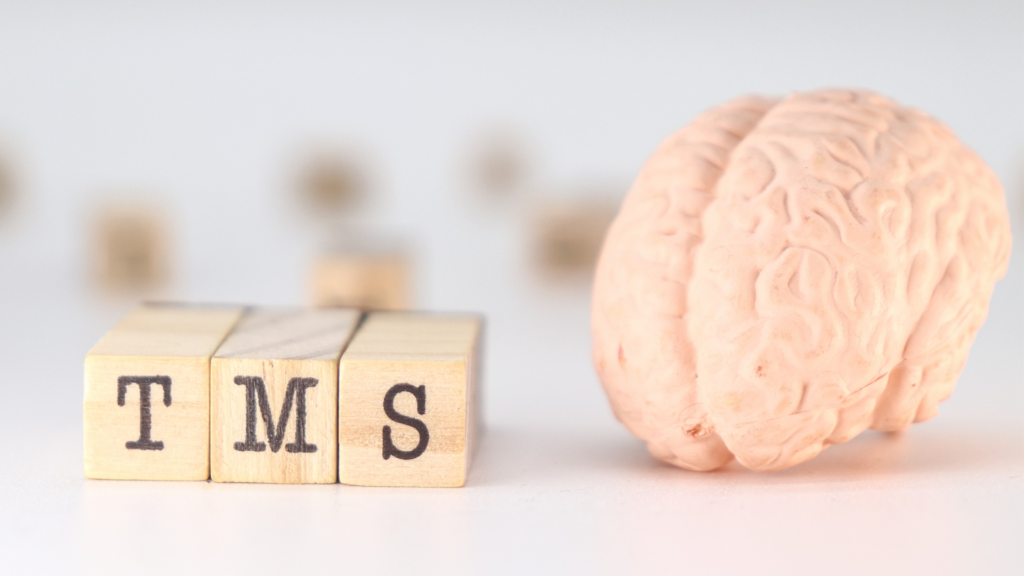What is transcranial magnetic stimulation?
Transcranial magnetic stimulation (TMS) is a treatment and can be an important tool in the care of patients with treatment-resistant depression, a type of depression that does not improve after trying antidepressant medications and talk therapy. TMS treats nerve cells in the brain that work incorrectly in patients with depression.
With TMS, strong magnetic pulses (similar to the strength of an MRI) are applied through an insulated magnetic coil placed over the head. This stimulates nerve cells in the area of the brain involved in mood and depression. The most common area treated with TMS is an area of the brain underneath the forehead close to the hairline, called the left dorso-lateral prefrontal cortex.
The treatment is different than medications because it does not directly work on brain chemicals (called neurotransmitters).
A series of treatments is given five days per week for up to six weeks. The repeated brain stimulation produces a growing effect, which can improve mood, motivation, energy and concentration.
TMS is non-invasive and is done on an outpatient basis under a physician’s supervision. During the treatment, patients are resting comfortably in a reclining chair. It usually takes less than 30 minutes. Patients resume their daily activities immediately afterwards.
Who is TMS right for?
TMS is FDA-approved for the treatment of depression that has not been helped with medications. Patients who have problems with medications because of side effects are also candidates for TMS. It is covered by most insurances.
Patients with metal in their head (shrapnel, screws or clips from surgical procedures), who have heart electrodes or who have pacemakers should not receive TMS. The magnetic field can interfere with these.
What are the potential benefits and risks?
According to Pilar Cristancho, MD, a WashU Medicine psychiatrist, TMS helps 40-60% of patients with medication-resistant depression. About a third of patients improve completely after a TMS course and their depression goes into remission.
TMS does not have the negative side effects of medications like upset stomach, sedation or sexual issues. No side effects such as loss of memory have been reported with TMS. The most common side effects include mild headache and discomfort or muscle twitches that come and go on the part of the head where the coils were place.
Although rare, a seizure can occur during TMS. We follow specific safety guidelines to decrease chances of this complication. Patients also wear ear plugs during treatment to protect their hearing.
How can WashU Medicine psychiatrists help?
Our expert team strives to find the right treatment plan to help patients struggling with depression. We are located at:
WashU Medicine Mental Health and Wellness Center
Taylor Avenue Building
600 South Taylor Avenue
Suite: 122
St. Louis, MO 63110
Please call 314-286-1700 for an appointment.
